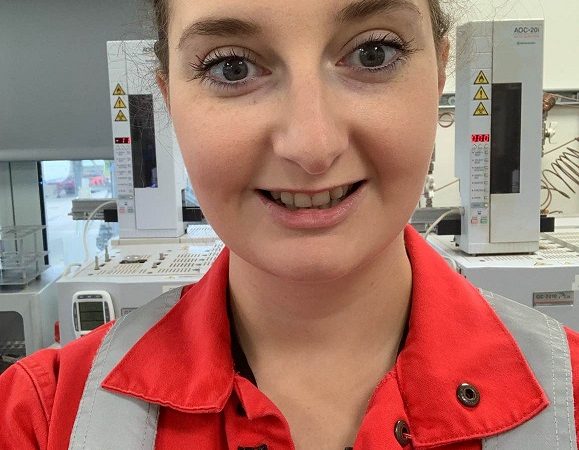Charlotte gives an insight into the current state of the biofuel industry and its future direction.
Charlotte Fowles – Senior Quality Control Technician – Argent Energy. BSc (Hons) Biochemistry, 2014, Liverpool John Moore’s University.
Since February 2018 I have been a member of the Quality Control Analysis Team at Argent Energy. Argent specialises in the production of biodiesel by utilising waste fats and oils from other industries such as tallow, used cooking oil and sewer grease. The biodiesel we produce is compliant with the British Biodiesel Standard EN 14214.
The biofuel industry generally has met with criticism recently over the use of crops being converted to biodiesel rather than contributing to the natural food-chain/feeding livestock. Thus, it is important within the manufacture of biofuel to have a highly sustainable feedstock supply which is achieved by excluding any raw materials which may be used as food or agricultural feed. The use of biofuels provides significant greenhouse gas savings in comparison to regular mineral diesel; and the carbon footprint of Argent’s fuel is exceptionally low due to only waste materials being used as feedstock.
The biofuel industry is tipped to continue to grow through the next few decades, this is due to ever-growing mandates for renewable fuels to replace mineral fuels, a continuing demand for biodiesel for decades to come and an increase in global population causing a higher demand for transportation. However, there is a real urgency needed to lower the levels of greenhouse gas emissions and combat global warming before it is too late. That is why when the opportunity to become a part of a green energy company arose, I did not hesitate to apply.
My role within the Quality Control Team includes analysis of finished distilled biodiesel, in-process materials, raw materials as well as blended products which are mixtures of biodiesel and regular mineral diesel (these are sold to emission-conscious fleets which are wanting to reduce their environmental impact). This large level of analysis, undertaken on a day-to-day basis, contributes to a high-pressure job where time management and organisation are key. I’ve thrived on this and recently was promoted to a senior role.
One piece of advice I wish I had been given whilst at university is that practical lab experience is invaluable. Breaking into any science industry is no easy feat, and my first laboratory role was part-time which I had to run alongside a waitressing job at a busy restaurant. If you have the luxury of being able to consider a year out in industry or work experience placements I would recommend that you take them. Employers will always value experience and I do believe it gives you the upper hand when searching for your first job role as a graduate.
(Image: Charlotte Fowles)

